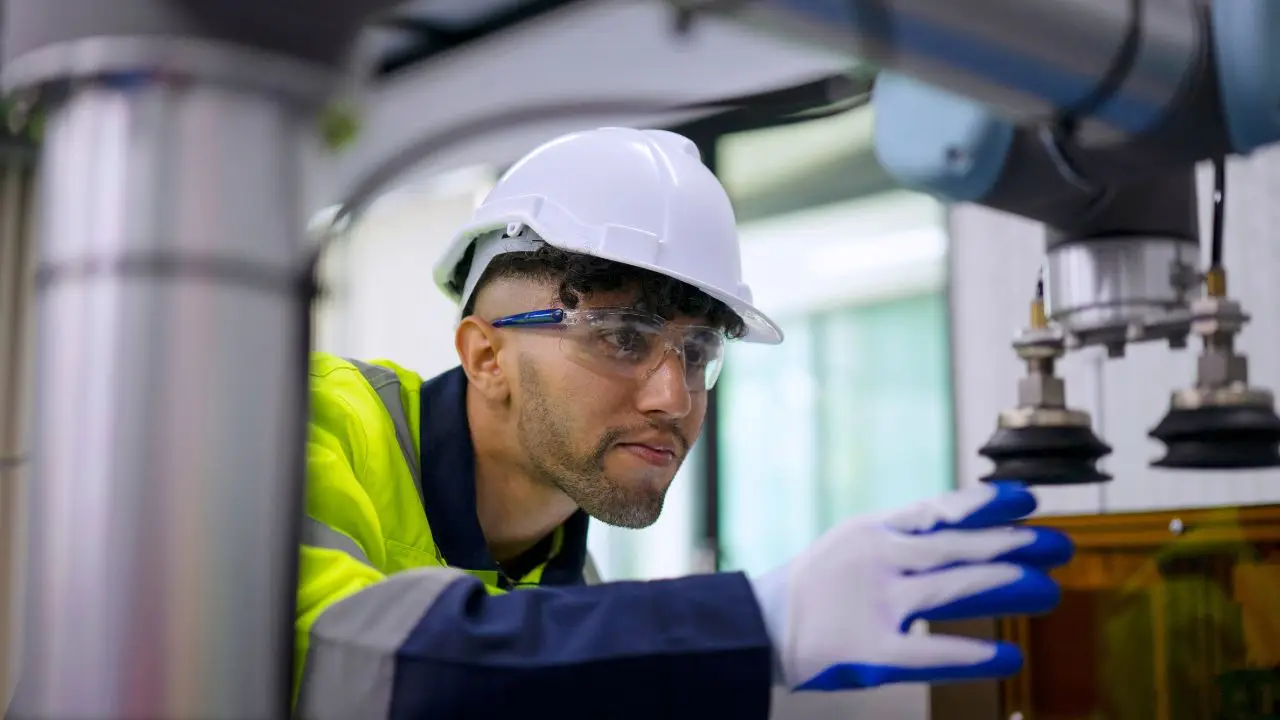
Artificial intelligence and data-driven tools are altering how we work across industries, and recruitment is no exception. With increasing pressure to find talent quickly, AI in recruitment is simplifying tasks and promoting success in a skills-focused economy. Users are seeing the rewards and benefits of faster productivity, improved accuracy, and greater convenience. But while the benefits are clear, finding the right balance between data and human expertise should remain at the forefront when making effective, long-term hiring decisions.
Every year, the labour market undergoes changes that force companies to rethink how they attract and keep their best employees. Understanding these shifts, especially the interplay between data-driven strategies and human expertise, is the only way to future-proof your hiring strategy. Globally, businesses are facing new complexities such as increasing hiring costs, skills shortages (particularly in engineering and technical sectors), and a growing demand for data-led hiring strategies.
Here, we explore how hiring strategies that blend data and people are better positioned to attract, engage, and retain the right candidates, and how this can be achieved through models like Project RPO.
Current trends in AI and data adoption
Understanding what's happening in the labour market – and why – is the only way to improve your hiring approach. AI and advanced analytics are now at the core of recruitment transformation, with the global industry market forecast to increase by USD 287.2 million at a CAGR of 7.4% between 2024 and 2029. However, while global trends show increased investment in AI recruitment tech, with Europe contributing 36% to global growth, the Asia-Pacific (APAC) region has cautious adoption. For example:
- While New Zealand has a high adoption rate, with 82% of HR professionals reporting using AI, only 43% in the rest of APAC do. Singapore stands slightly above the average at 45%, while Australia lags at 35% (Staffing Industry Analysts).
- And despite rising awareness, many companies feel unprepared to adopt AI fully. According to Deloitte, Gen AI is particularly underutilised, with nearly three-quarters of APAC businesses admitting they're falling behind.
Understandably, some companies are reluctant to integrate data-driven and AI software because of risks involved, including concerns about data privacy, bias, and implementation cost. However, when applied thoughtfully and in conjunction with human input, these technologies can produce positive recruitment outcomes.

Solving hiring challenges with Project RPO
Project RPO is becoming an increasingly popular recruitment model that addresses the need for flexibility and speed. Designed for short-to-mid-term engagements focused on defined hiring goals, it is increasingly used to overcome demand spikes or support new project mobilisations. This model combines technology's scalability with the consultative expertise of dedicated recruiters, making it ideal for engineering and technical industries where skill shortages and project-based hiring are common.
At NES Advantage, we've seen firsthand how Project RPO models empower organisations to:
- Scale hiring quickly without compromising quality
- Reduce time-to-hire and cost-per-hire through data-backed processes and expertise
- Maintain a positive, consistent candidate experience, even in tight talent markets
Benefits of data-driven recruitment
90% of Fortune 500 companies now use applicant tracking software (ATS), highlighting the shift toward data-led hiring. But data isn’t always about dashboards and reports; it’s just as important for making more accurate, faster decisions. Some of the key benefits of data integration include:
- Predictive hiring models: AI can highlight likely top performers and reduce attrition.
- Improve workforce planning: Analytics reveal skill gaps and hiring patterns.
- DE&I optimisation: Algorithms can be configured to identify and remove bias in job descriptions and screening, ranking candidates based on skill sets and experience.
Still, technology must be used responsibly. According to research by PwC, 77% of candidates wouldn't apply for a job if they felt their privacy wasn't protected. Engineering and technical candidates, in particular, are mindful of how their digital data is used in recruitment. Transparency in collecting and applying data is essential to maintaining candidate trust and organisational attractiveness. Candidates want to know how their data is being used, 78% expect clarity on data usage, and 81% are willing to share social media data to recruiters if privacy is assured.
Why the human factor still matters
AI excels at streamlining mundane and admin-heavy tasks, but it can't replace the emotional intelligence and contextual understanding that trained recruiters bring to the process. Personality, cultural fit, creativity, and long-term potential are still best assessed by people, not algorithms.
Any candidate will expect a smooth digital experience provided by an employer, but what sets companies apart is the human interactions they receive throughout the process. In technical industries, especially, where roles are complex and stakes are high, you cannot solely rely on automation to achieve excellent hiring outcomes. From personalised outreach to meaningful direct conversations during critical stages like interviews and offer negotiations, these touchpoints build trust and ensure a positive candidate experience, impacting employer branding and retention. Recruiters understand what makes someone stay, not just what makes them qualify.

How to choose the right technology
Project RPO providers offer access to intelligent hiring platforms, but more importantly, they bring the expertise to select tools that align with your hiring goals and candidate experience. Recruitment tools should not only optimise tasks for your employees, but they should also ensure a smooth process for applicants to reduce dropouts.
Before deploying new recruitment technology, recruiters and hiring managers must have a firm grasp of the problems they're attempting to address to ensure the correct tool is selected. Investigate and research the different types of available software and look out for their AI capabilities. Some will offer features such as machine learning, predictive analytics, or Gen AI—you’ll need to decide which best fits your needs.
If possible, trial a variation of tools and use them for a few pilot projects to see how they perform at various recruitment tasks, such as writing job postings, CV parsing, and screening candidates, and measure their impact over this time. Once confident in your choice, you can concentrate on integrating the system into your recruiting process and provide training to stakeholders to use it effectively.
Candidates are using AI too. Here’s how to respond
Moreover, on the flip side of the process, candidates are using AI too, with many individuals now submitting CVs and applications refined through Open AI tools. This raises the bar for hiring managers, requiring them to look beyond the surface level and evaluate actual capability. It's therefore equally important to modify the recruitment process to align with this trend, ensuring the emphasis is on skills-based evaluations and assessments that demonstrate the candidates' abilities and expertise needed for the position. These will help to uncover real expertise and reduce the impact of AI-assisted applications that may look impressive but lack substance.
Key takeaways for hiring leaders: what you can do next
- Balance technology with human insight: Automate what you can, but keep the human touch where it counts
- Invest in Project RPO: For complex, short-term, or high-volume needs, this model offers agility and expertise
- Use data responsibly: Be transparent and ethical about data usage, especially in engineering sectors
- Keep the candidate at the centre: Build processes that enhance trust and experience, not just efficiency
At NES Advantage, our RPO teams understand the market in which you operate. With our support, you can outsource your direct hiring function in part or in full, rest assured that your hiring managers will receive the strategic insights and guidance they need. Acting as a true extension of your team, we use market intelligence, data, and human judgment to deliver quality hires. By aligning current technology with the experience of seasoned recruitment professionals, you can build an adaptable, efficient hiring process that attracts and retains top-tier talent. Contact one of our experts today to enhance your recruitment strategy.




